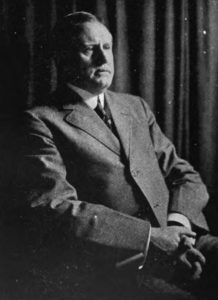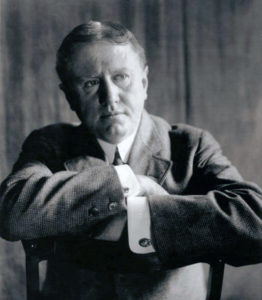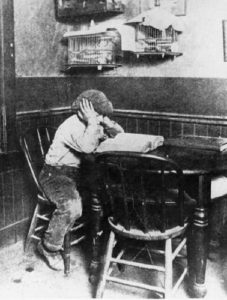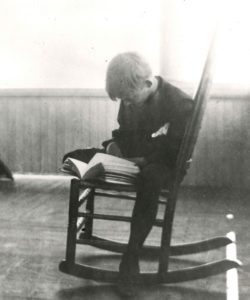Biography

HENRY was the pen name of William Sydney Porter (1862-1910). He was born in Greensboro, North Carolina. His mother died when he was three, as did one of his two brothers. He was raised in the home of his paternal grandmother; his father, a physician, was more obsessed with inventing a perpetual motion machine and drinking whisky than tending to his children. Porter’s great uncle had been governor of North Carolina, and his upbringing was law-abiding and middle class. Porter worked in his uncle’s drugstore from the age of sixteen and qualified as a licensed pharmacist just before his nineteenth birthday. A moderately humdrum early life included useful if modest artistic skill and much reading, especially of the classics (One Thousand and One Nights and Burton’s Anatomy of Melancholy were his favourites); his Aunt Lina, who had tutored him throughout his older teenage years, had encouraged a voracious reading habit.
When schooling was finished, outdoor work on a ranch was sought to alleviate a persistent adolescent cough. He settled in the warm climate of Austin, Texas from 1884, where he gained a surprising reputation as a broncobuster and where he recovered health. Brief work for a drug company and cigar store followed. His social life was rich, and he started to write short stories in his spare time, mostly westerns that he destroyed. His writing was encouraged by his new wife, Athol Estes, a consumptive with whom he had eloped in 1887. He worked for four years as a survey draftsman and cartographer for the Texas General Land Office, resigning when his political promoter lost office; this setting provided ammunition for future stories such as Georgia’s Ruling and Buried Treasure.
Porter’s work as a teller at the First National Bank of Austin Bank did not end well: casual administration and porter’s lackadaisical attitude led to his suspension, dismissal, and an eventual charge for embezzlement once the federal auditors became involved. Before his indictment he had earnt a wage as a satirical journalist; he contributed stories and cartoon sketches to his own satirical start-up, The Rolling Stone, and then for The Houston Post. In a desperate impulse and whilst changing trains to attend his trial, he determined to flee to New Orleans and then on to Honduras, where there was no extradition treaty. Here he made friends with the larger than life Al Jennings, a notorious train robber who became a silent film star and later an attorney; Porter’s story Holding Up A Train was inspired by this meeting. Jennings, too, wrote a book in 1921, about their encounter, Through the Shadows, which recalled also the time they had spent coincidentally in prison, and their later reconciliation in New York.
Porter returned to the United States in 1897 after three years absence, to comfort his wife who was near death. At his subsequent trial he offered no defence, was found guilty of embezzling $854.08, and was committed to a five-year sentence in the Ohio State Penitentiary. His pharmacist qualifications meant that he had an easy time; he was released early for good behaviour in July 1901, when he returned to his daughter and in-laws to Pittsburgh.
He had always written short stories but had become practised during his stay in the Penitentiary. He published at least 14 stories in magazines under several pseudonym; manuscripts were placed through the wife of a fellow imprisoned banker, a deceit to mask his criminality. The first of these stories, The Miracle of Lava Canyon, was published in McClure’s Magazine, September 1898. He became a prolific writer after he settled in New York in early 1902 at the request of his publisher. It is estimated that he he wrote 381 stories in eight years, with clockwork regularity to begin with; he contributed weekly to the New York World Sunday Magazine, for example, and he built up a dedicated readership quickly.
His subject matter may appear as virtuosic, but was culled always from his own experience. When he had started writing for The Houston Post, he was to be found loitering often in hotel lobbies hunting for story subject matter. His first book, Cabbages and Kings, was published in 1904; its stories are set often in a midwestern American town that might have been anywhere in Texas, and a few other of its tales were set in coastal Latin America towns that might have been anywhere in Honduras. (The phrase “banana republic” comes from two of the stories published in this volume, The Admiral and Two Recalls). From 1904 he turned to write mostly of New York, his new locale and a verdant playground of plot and humorous mischief. Two motifs typically contained in his work are the imposter (or someone in disguise), and the idea that fate shapes a life above all else. These two features in many ways sum up Henry’s own hapless adventure, fuelled ordinarily by his own negligence or mistake. His stories reflect casual abandon or a carefree observation of the human condition, and he was adept at describing the resourceful ways that his characters deflected difficult or compromising situations.
The Four Million was Henry’s second collection of short stories, published in 1906, and it contains many of his most anthologised tales – The Gift of the Magi, After Twenty Years, The Skylight Room, The Furnished Room and The Cop and the Anthem. Its title was a response to a newspaper editorial by Ward McAllister, a self-appointed grandee of the New York ‘knickerbocracy,’ who was hostile to the drift of outsiders to the city, perhaps like Porter, though especially those from the midwestern states. He had claimed that there were only 400 people in New York worth knowing, a limited number who mattered or who felt at ease in the ballrooms of its high society: “If you go outside that number,” he warned, “you strike people who are either not at ease in a ballroom or else make other people not at ease.” Porter was a populist in every aspect, and held that all were of interest. He was fascinated by New York life – he referred to it as “Bagdad-on-the-Subway” – and once remarked that he could live a lifetime in each of its streets. He delighted especially in its commonplace aspect and cast his roving eye with a playful intent to find humour; he heightened a demotic tale with romance and colour. 99 of the 115 stories he published in 1904 and 1905, the hightide of his brief career as a writer, deal with some facet of the city’s life.
 Porter’s second marriage proved to be difficult. Sarah Lindsey Coleman had been a teenage sweetheart with whom Porter had corresponded when settled in New York; he met her again on a return visit to North Carolina. She was a writer and was to publish a novella of their romance, Wind of Destiny. But by now his heavy drinking affected both how he conducted his life and his health; his writing suffered also, and he was not so productive in his later years. Most of the thirty or so stories that date from this period tend to relate nostalgically even wistfully to his youth, and focus upon the confusions of antebellum culture in the South. Porter died in June 1910 from cirrhosis of the liver, diabetic complication and an enlarged heart.
Porter’s second marriage proved to be difficult. Sarah Lindsey Coleman had been a teenage sweetheart with whom Porter had corresponded when settled in New York; he met her again on a return visit to North Carolina. She was a writer and was to publish a novella of their romance, Wind of Destiny. But by now his heavy drinking affected both how he conducted his life and his health; his writing suffered also, and he was not so productive in his later years. Most of the thirty or so stories that date from this period tend to relate nostalgically even wistfully to his youth, and focus upon the confusions of antebellum culture in the South. Porter died in June 1910 from cirrhosis of the liver, diabetic complication and an enlarged heart.
He wrote over 400 short stories, longer pieces as well, usually immensely witty with exaggerated twists at their end. He rejoiced in the unfortunate and jinxed, difficult situations and the ingenious ways often in which people escape from them. The critics derided them, yet many of these stories live on in the popular imagination and have been the basis for successful film or television adaptation. A Retrieved Reformation, for instance, became a successful Broadway play in 1910 and was filmed three times before 1928, this last by Metro-Goldwyn-Mayer, its first sound film with dialogue sequences. In 1918, the O. Henry Memorial Award was founded, to be awarded each year to the author of America’s best judged short story.





 Allen Lane, the founder of Penguin books, was a man who liked to be seen riding a virtuous horse though his spurs were as sharp as an abacus: money was his game and he chanced to sell his new Penguin range through his Penguincubator in 1937, in tobacconists alongside newspapers and boiled sweets, also a few placed as concessions in branches of F. W. Woolworth’s. One Penguincubator was commissioned at Charing Cross Station, placed next to a machine vending cigarettes. (6d the price of a packet of fags, 6d the price of the first Penguins, though am not sure if Lane had thought through how you were supposed to keep the books alight without a filter.) Booksellers in the Charing Cross locality objected to the Penguincubator and it was removed. It would seem that they were never successful in any case.
Allen Lane, the founder of Penguin books, was a man who liked to be seen riding a virtuous horse though his spurs were as sharp as an abacus: money was his game and he chanced to sell his new Penguin range through his Penguincubator in 1937, in tobacconists alongside newspapers and boiled sweets, also a few placed as concessions in branches of F. W. Woolworth’s. One Penguincubator was commissioned at Charing Cross Station, placed next to a machine vending cigarettes. (6d the price of a packet of fags, 6d the price of the first Penguins, though am not sure if Lane had thought through how you were supposed to keep the books alight without a filter.) Booksellers in the Charing Cross locality objected to the Penguincubator and it was removed. It would seem that they were never successful in any case.